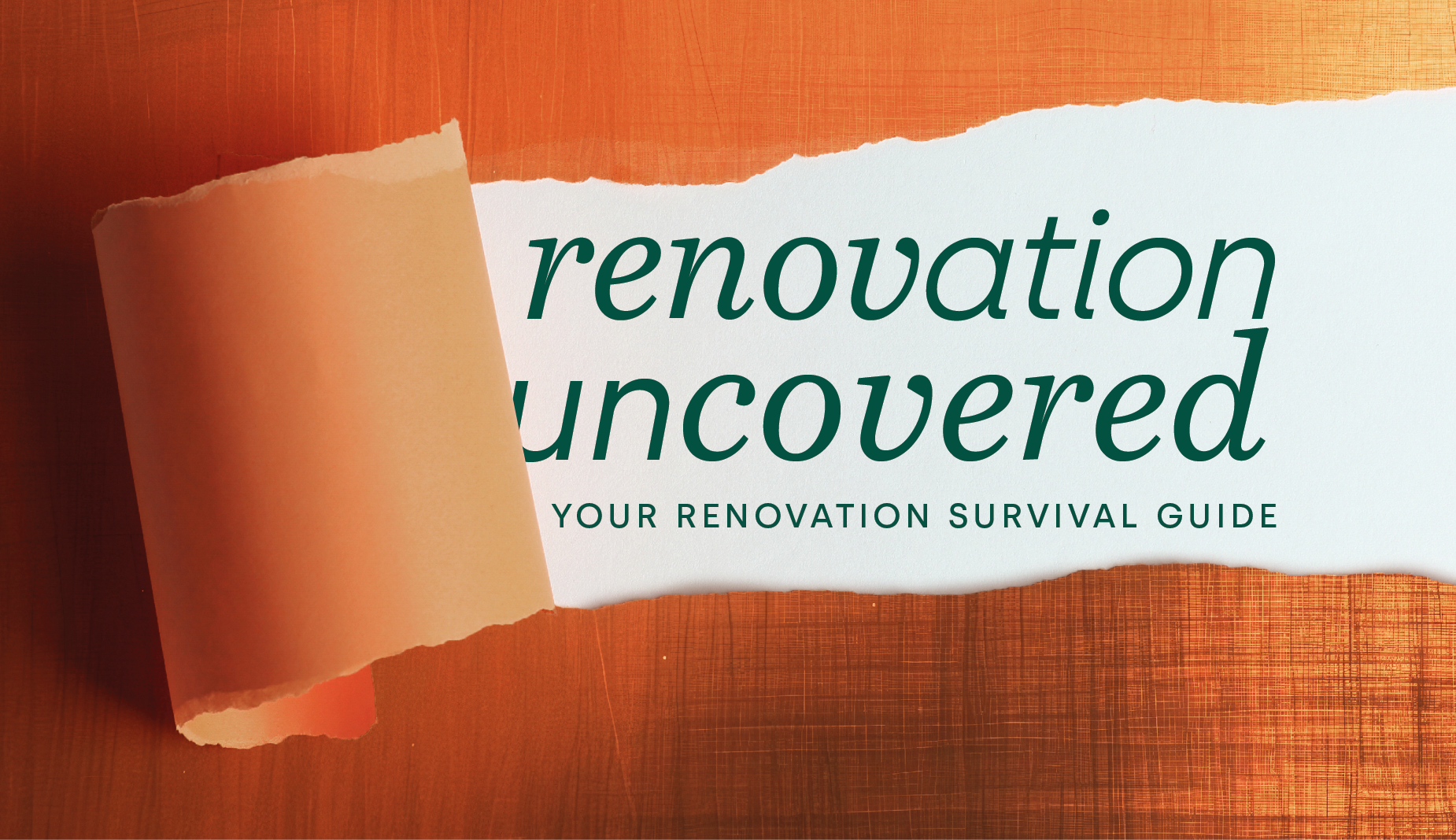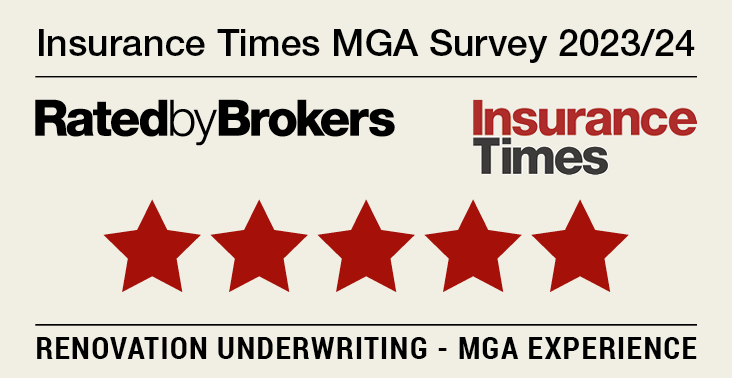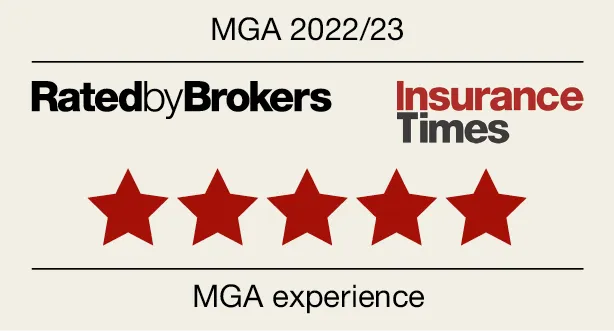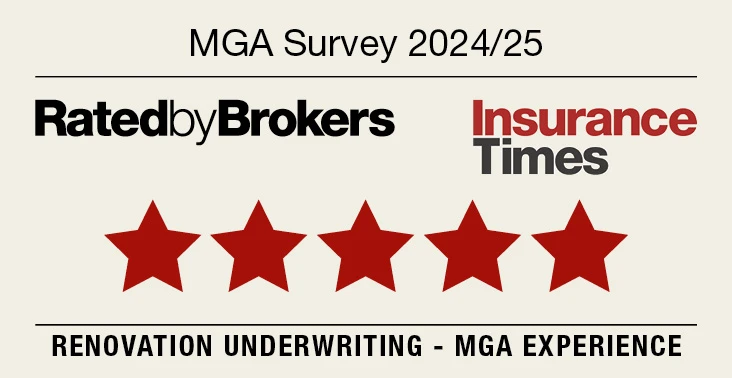
Douglas Brown, Managing Director of Renovation Underwriting, gives his thoughts on why AI is the renovation risk that we can’t ignore.
When a story hits the news about someone knocking down a load-bearing wall because ChatGPT said it was fine, it might raise a chuckle and a fair bit of light disbelief. But if you work in renovation, whether it be insurance or construction, it is far from a laughing matter and much more worrying.
According to a recent article in the Daily Record, UK homeowners are increasingly asking ChatGPT for guidance on everything from architectural drawings to structural alterations with the prompt ‘ChatGPT design my room’ having risen by an eye-watering 4,000% in six months. But while design ideas in themselves are fine, they are merely that – ideas. But when they come to being acted upon, the results are, predictably, mixed and in some cases can lead to catastrophic mistakes.
For brokers and contractors, it raises a big question: what role do we play when smart tools are being misused in risky ways? And how do we protect homeowners from well-intended but dangerous construction and renovation planning?
Let’s be clear: ChatGPT isn’t the problem but it definitely isn’t the solution either.
Inspiration is fine. Instruction is not
ChatGPT and other forms of Artificial Intelligence are increasingly playing more of a part in our everyday lives – but like any search engine or AI tool, it’s only as good as the question being asked and the judgment of the person asking it. For all the suggestions and answers AI may have, it certainly doesn’t have any qualifications in structural engineering.
That’s where the issue starts.
ChatGPT may offer design inspiration or help you organise a mood board. But it cannot:
- Design within planning policy constraints
- Create a set of technical drawings suitable for builders
- Recommend materials based on structural suitability or performance
- Provide advice that complies with building regulations
- Offer accurate costings or realistic timelines
- Replace professional sign-off or carry liability if something goes wrong
So while it can help with the “feel” of a project, it cannot physically complete any building work. The more complex the renovation, the greater the risk when inspiration is mistaken for instruction.
The human cost of DIY advice
The problem at hand isn’t that homeowners are getting ideas online, that’s been happening for decades. It’s more that they’re trusting AI to replace professionals rather than complement them.
In the world of insurance, it’s blindingly obvious to see the pitfalls of this approach. People who press ahead based on AI-generated advice may well invalidate their cover, fall foul of planning applications, or create hazards that put lives at risk. These aren’t minor errors. They’re expensive, disruptive, and in some cases impossible to correct without starting again.
Worse still, most professionals won’t entertain advising on building works that have already gone wrong, so putting right any existing drama or mess may not be an option. After all, no-one wants to inherit liability for work they didn’t advise on in the first place.
There’s a quote I keep coming back to from eminent Victorian John Ruskin that stands the test of time:
“It’s unwise to pay too much, but it’s worse to pay too little. When you pay too much, you lose a little money – that’s all. When you pay too little, you sometimes lose everything, because the thing you bought was incapable of doing the thing it was bought to do.”
I’d argue that the same applies to advice, certainly when it comes to insurance. You either pay for cover that does what it needs to do and get peace of mind, or you don’t – and hold a policy that has holes, and risk paying twice for costly mistakes.
Insurance needs a firm foundation
At Renovation Underwriting, we’ve seen time and again that the best outcomes come from thoughtful and diligent planning, clear lines of responsibility, and insurance that recognises the reality of the renovation undertaken.
That includes:
- Clients working with professionals who are properly qualified, with the right Professional Indemnity cover
- Projects scoped and budgeted accurately, with risks identified and mitigated early
- Clarity over site conditions, structural assessments and phased works
- Documentation that supports the insurance – and vice versa
It’s this level of joined-up thinking that makes specialist renovation insurance so vital. A standard home policy won’t cover projects of particular complexity, and we shouldn’t expect it to. But the right cover can be built around a realistic plan, not a speculative AI output.
Our role as a partner to brokers and contractors
Brokers and contractors have a huge part to play in educating and protecting clients. It’s not about scaring them. It’s about setting expectations.
If your client mentions “having done some research” or “getting help from ChatGPT”, that’s a perfect prompt for a quick temperature check. Are they getting real advice from a qualified architect or structural engineer? Or are they hoping to cut corners because the AI made it sound easy?
A few gentle questions now could save them tens or hundreds of thousands later. And if it helps you position specialist insurance early on – even better. That’s where we come in.
Let AI inspire, but let us insure
New technology and design tools are great and we certainly shouldn’t shy away from their usage. In construction, they can offer tantalising ideas, suggest options, and even help people visualise the property they’d love to create. But that’s where it needs to end. AI can’t bear the weight of a roof, and it certainly can’t navigate the complexity of planning, procurement or liability.
Those who decide to proceed on that basis not only risk catastrophic mistakes, they also open themselves up to costly changes of plan for which they have no recourse and should expect no sympathy.
Renovation is real, physical, expensive work – and it deserves real-life, qualified input. We’re here to support brokers, contractors and their clients with the right insurance for their project, with support from our product brochures, appetite guide, experience and expertise.
If you’d like to know more about our offering or a client needs specialist advice on their latest renovation, please get in touch. It’s so important to make sure a property owner is protected when undergoing works. As we’ve always said and will continue to say: “Nobody should lose their home because they are not adequately insured during a renovation project.”




















